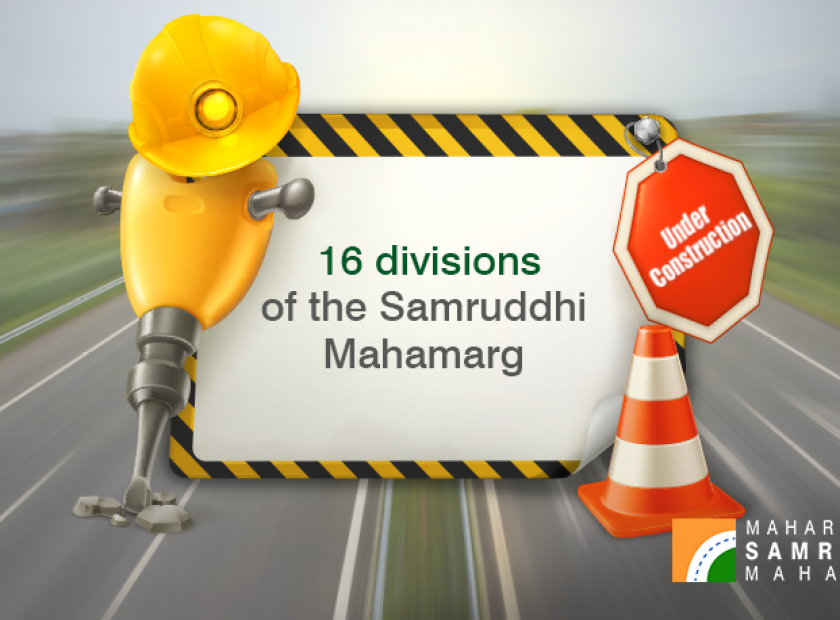
When it comes to steering a country towards progress, new developments in infrastructure facilities play a crucial role. The proposed Maharashtra Samruddhi Mahamarg will be the country’s longest and first Greenfield Expressway which will play an all-important role in the overall development of not just the state, but hopefully the country as well. The work on this proposed highway has reached a decisive stage. The MSRDC was always insistent on ensuring proper dialogue with the farmers and other beneficiaries and making them a part of the scheme by providing them with complete and correct information from time to time. However, there is a section of land that cannot be purchased under the direct purchase of land scheme due to some technical aspects. This two-part article is an attempt to shed some light over such land and the relevant laws governing it. This is the second part of the article…
An important aspect of the Maharashtra Samruddhi Mahamarg Project – the acquisition of land by mutual consent of the landowners is almost complete. The land required for this Nagpur-Mumbai fast-track Express Highway has been largely purchased from consenting farmers by engaging in fruitful dialogue with them. The MSRDC has managed to purchase such land for the project by interacting with the farmers and offering them immediate compensation that is five times the market price. In order to expedite the work on the Maharashtra Samruddhi Mahamarg, it is crucial that the MSRDC acquires all 100% of the required land. Currently, the MSRDC has collectively acquired 81% of the land spread among 10 districts. The process of acquisition of the remaining land, which includes both privately-owned and government-owned land, is faced with some technical difficulties which we need to understand in more detail. The MSRDC has not been able to acquire such land through the direct purchase of land scheme due to the technical difficulties involved. Even after examining all possible alternatives to purchase such land directly through the scheme, the MSRDC had to face a lot of difficulties in the acquisition process. Eventually, it was decided to opt for a legal recourse to counter the technical difficulties. Some of these technical issues were explained in the previous part of this article. Let us take a look at the remaining issues in the second and last part of this article.
- 7. Land where the name of a minor is registered as owner on the 7/12 extract, for which the Court needs to issue a mandate, and cases where the name of the legal heir is pending to be updated: It is necessary to seek permission from the Court to carry out any transaction related to a land registered in the name of a minor. After carrying out any transaction involving such land, the judiciary has to be assured about the maintenance of the concerned minor. Similarly, no transactions can be carried out in the case of a land where the name of legal heir is pending to be updated. The combined area of such land coming under the purview of the Maharashtra Samruddhi Mahamarg scheme is about 29 hectares. This category of land is present in Amravati, Buldhana, Jalna, Aurangabad, Nashik and Thane districts.
- 8. Gifted Land, Temple Land or Land belonging to the Waqf Board: The government allocates certain land for places of worship, as well as to the Waqf Board. Similarly, certain land is given away as gift. The Maharashtra Samruddhi Mahamarg project includes about 77 hectares of such land. These categories of land are present in Amravati, Washim, Buldhana, Aurangabad, Ahmednagar and Nashik districts for which permission needs to be obtained from Charity Commissioners.
- 9. Excessive demands by owners of Non-Agricultural Land: There have been some difficulties in acquiring land for the Express Highway project from some of the landowners that have previously purchased lands from farmers and converted them into Non-Agricultural Land for housing and/or similar purposes. Excessive compensation is being demanded in the purchase of such land. Collectively, around 34 hectares of Non-Agricultural land is present in Wardha, Jalna, Aurangabad, Ahmednagar, Nashik and Thane districts and it is necessary to verify the Non-Agricultural status of such land.
- 10. Private Forests and land under Forest Rights Act: The ownership rights of Private Forest Land as well as land under Forest Rights Act cannot be transferred without obtaining consent from the Central Government, which is why such land cannot be purchased under the direct purchase scheme. It is expressly stated that permission needs to be obtained from the Central Government to pass an order allowing the acquisition of Private Forest Land. Even though some of the land is owned by the Forest Department, there are certain areas that are occupied by tribals. The acquisition of such land is not possible unless and until the exact area is determined. These lands can only be purchased by making proper applications to the Forest Department.
- 11. Tribal Land: Collectively, about 19 hectares of land is under the ownership of tribals in the districts of Washim, Ahmednagar, Nashik and Thane. It is necessary to obtain permission from the relevant Gram Sabhas and Departmental Commissioners to acquire land from the tribals, which brings restrictions on the purchase procedure. Such land will now have to be purchased as per the prescribed laws and regulations.
- 12. Land, the combined measurement of which is not acceptable to the landowners: The number of farmers who are landowners and who do not approve of the combined land measurement computations is significant. The acquisition of about 84 hectares of land is pending due to non-cooperation by such farmers in Amravati, Buldhana, Jalna, Aurangabad and Nashik districts. In such cases, compulsory acquisition of land becomes necessary.
What are the implications of the applicability of the notification under Section 15(2) of the Maharashtra Highway Act?
As per Sub-Section 2 of Section 15 of the Maharashtra Highway Act, the applicability of the notification implies that the relevant landowners have a period of 21 days to register their objections. It is clear that the acquisition of the area that cannot be procured will be done in accordance with the Act. There is still time to go through with the acquisition procedure until the objections are considered and a declaration is made under Section 18(1) of Act. During this time, the administration will continue interacting with the landowners for acquisition by mutual consent as well as purchasing land through the direct acquisition scheme. Thus, it will be ensured that the interests of the landowners are continued to be taken care of.
How much compensation will you get?
Till the time Section 18(1) is implemented if the landowners want to give their land by mutual consent, it is possible to enter into such a transaction with the MSRDC. There will be time to purchase such land in the interim period. After the declaration of Section 18 (1), the consent award shall be decided by the competent authority and for this, the landlord will be given five times the cost of the purchase.
Even after implementation of Section 18(1), the land which remains unsold or the land, the sale of which is not consented to by the landowners will be awarded as “non-consent” and the compensation given will only be four times the market price. In such cases the compensation amount will be deposited with the Court and there is a provision which enables the government to claim ownership of such land.
What is the loss due to compulsory acquisition under the Act?
The government has fixed an additional compensation of 25 percent for the consenting landowners – which will not be given to the non-consenting landowners as their land is nevertheless required for the project.
The Maharashtra State Road Development Corporation has appealed to the landowners and farmers to show their support to this ambitious scheme by making their lands available for the project and ensuring that the compensation received is appropriately invested.




